I visited Dr. Roman Kintanar in Quezon City, the Philippines back in 1994. My main purpose was to gather information about his life (a doctorate in physics at UT in 1951 and nearly 40 years as head of the country’s weather bureau) for my book Coming to Texas, but 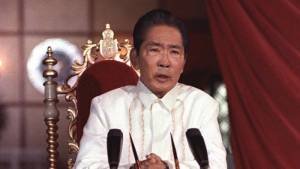 sometimes we ventured into other areas. Assuming that the deposed Ferdinand Marcos was universally reviled there, I made a critical remark. Dr. Kintanar, kind though he was, offered an immediate and spirited defense of Marcos, the specifics of which I do not remember. My main “takeaway”—where in the heck did that term come from?—was to avoid drawing hasty conclusions about other countries and their cultures. I have tried to adhere to such a policy ever since.
sometimes we ventured into other areas. Assuming that the deposed Ferdinand Marcos was universally reviled there, I made a critical remark. Dr. Kintanar, kind though he was, offered an immediate and spirited defense of Marcos, the specifics of which I do not remember. My main “takeaway”—where in the heck did that term come from?—was to avoid drawing hasty conclusions about other countries and their cultures. I have tried to adhere to such a policy ever since.
Because I have a deep and abiding affinity for the Philippines, I am concerned about President Rodrigo Duterte’s extrajudicial killings to fight drug-dealing and -consumption. Same for environmental issues like pollution, illegal mining and logging, deforestation and wildlife extinction. Same for corruption (the Priority Development Assistance Fund scam of 2013 is but one recent example) and the wide gap between a few rich Filipinos and a much larger number of poor ones. Same for the country’s sagging infrastructure—roads, bridges, sewage systems and so on. Same for the shortage of classrooms which hinders education, creating a brain drain that sends too many of the country’s best and brightest overseas. Same for the lack of genuine and long-promised land reform. While the problems look daunting, the country’s culture pulsates and Filipinos find reasons to smile; one poll determined that they are the happiest people in Asia.
Undoubtedly multiple factors account for the Philippines’ endemic troubles, but I point to one in particular—the 333-year Spanish colonial era. The Spaniards were in firm control between 1565 (when 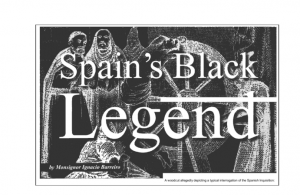 Miguel López de Legazpi planted the flag in Cebu) and 1898 (when they were defeated by the Americans). I want to make clear that I am not attempting to slander the Spanish. People of Spanish descent are touchy about the “black legend,” a school of thought which holds that Spain’s conquistadors and their descendants were more brutal, bloodthirsty, bigoted and fanatical than their English, French, Dutch or German counterparts. It’s all a matter of degree, and there is plenty of blame and shame to go around.
Miguel López de Legazpi planted the flag in Cebu) and 1898 (when they were defeated by the Americans). I want to make clear that I am not attempting to slander the Spanish. People of Spanish descent are touchy about the “black legend,” a school of thought which holds that Spain’s conquistadors and their descendants were more brutal, bloodthirsty, bigoted and fanatical than their English, French, Dutch or German counterparts. It’s all a matter of degree, and there is plenty of blame and shame to go around.
Nevertheless, I think that most of the Philippines’ current problems can be traced to the Spanish. Arriving in what we now call Luzon, the Visayas and Mindanao, they found an amalgamated Buddhist-Hindu-Malay-Polynesian culture. The natives were dispersed among semi-autonomous principalities and barangays, with no political state unifying the archipelago. The Spanish quickly changed that, consolidating power and imposing themselves on a people they considered vastly inferior. They brought civilization, or at least their version of it.
I will momentarily cast aside any pretensions to historical objectivity and state that the Spanish did a good and wonderful thing by halting the spread of Islam. Since the 13th century, Sunni Mohammedans had lived in the south—Mindanao, Sulu and Palawan—although there was a Muslim rajah as far north as Manila. Had these men from 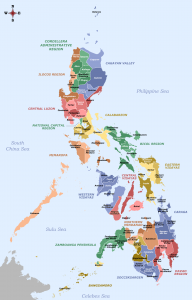 the Iberian peninsula not come with their horses and guns, the Philippines (named for King Philiip II) would have probably fallen under the crescent rather than the cross, same as Brunei, Malaysia and Indonesia.
the Iberian peninsula not come with their horses and guns, the Philippines (named for King Philiip II) would have probably fallen under the crescent rather than the cross, same as Brunei, Malaysia and Indonesia.
The people were put to work, as forced labor was a reality throughout the country for most of those three-plus centuries. Despite countless rebellions large and small, the Spanish held power with an iron grip. Colonialism is almost always about expropriating wealth, and the Spanish did so in the Philippines with glee. Seemingly every policy and every decision was about enriching themselves and the royal crown. The best example is the Manila Galleons, deep-drafted trading ships that linked the Philippines and Mexico, making port at Acapulco, via the trade winds of the Pacific Ocean twice a year. If global capitalism had a beginning, this was it. Simply put, they carried spices and luxury goods (the latter mostly of Chinese origin) to the New World, picked up Mexican silver and then brought it all to Madrid. The Manila Galleon voyages, in operation from 1565 until 1815, were lucrative in the extreme. I feel obliged to point out that not only were the Filipinos being ripped off, the Mexicans were too!
If the Spanish thought they could hold this outpost forever, they were mistaken. In the late 19th century, Andres Bonifacio, Emilio Aguinaldo, José Rizal and others began pushing for major reforms, if not revolution. They were in the process of throwing off their yoke when the Americans got involved. They joined the Filipinos in kicking the Spaniards out. But the USA, a country of which I am a citizen, made the paternalistic and chauvinistic decision to stay; the allies soon became combatants. It was an unequal contest, and the Yankees ruled from 1898 until 1946 (the Japanese having been in charge the last three years of World War II). We made our share of mistakes during that time and could 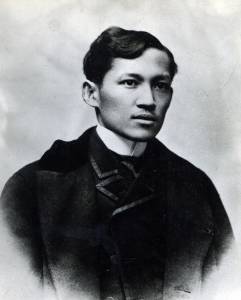 have done more to facilitate healthy economic and social growth in the Philippines. After the war, geopolitical matters disfavored the newly founded nation. To the Americans, reinvigorating Japan was a better way to block communism than helping the long-suffering Filipinos.
have done more to facilitate healthy economic and social growth in the Philippines. After the war, geopolitical matters disfavored the newly founded nation. To the Americans, reinvigorating Japan was a better way to block communism than helping the long-suffering Filipinos.
It’s not all doom and gloom in this country of 108 million. There is a burgeoning middle class, and the population is tech-savvy. Gross domestic product lately has grown by more than 7%, so Pinoys have reason for optimism. The country, now regarded as an “Asian tiger” by some financial analysts, has gold, copper, nickel, silver and gypsum below ground estimated to be worth more than $800 billion, not to mention tremendous reserves of natural gas off the coast of Palawan. I believe, or at least I hope, that the Philippine government and business sector can use these resources in a wise and transparent manner, overcoming the problems created by their long-departed Spanish colonial rulers.

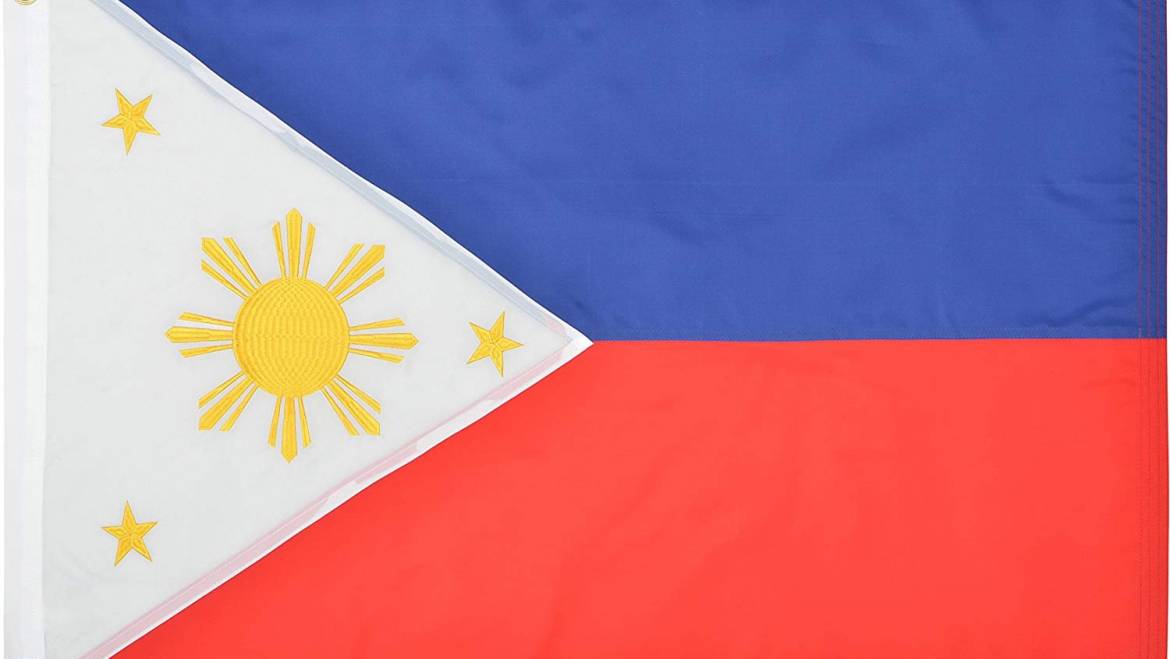
5 Comments
If there’s one thing that I am thankful for from the Spaniards is the fact that they brought christianity to the Philippines. Though it also become the biggest part of corruption and abused to our ancestors, who made Padre Damaso very popular in Jose Rizal Noli Me Tangere until today. But what’s the difference between the colonial days and the present days of the struggling Filipinos? Now that there’s a big threat that we will be under the control of power of China in the future because of what is happening at the west Philippine sea. Corruption was and will always be the biggest problem of my beloved country, it’s already malignant, sad but true. From the Marcoses up to the present politicians and government employees, aside from their loyal supporters( most of them were blind sympathizers) who are very much willing to support them, only those who can’t afford to hire “abogado de campanilla)”will be convicted and sent to prison. Filipinos were benefeting the Malampaya gas field in Palawan because it helps to reduced oil importation and gives us stable supply of energy and clean source of power. Filipinos should be more vigilant in the west Philippine sea oil deposit and its upcoming oil exploration for who will be the partner. Are we gonna be benefited or what?? Love for the country is not enough without the deeper knowledge and understanding of history and its importance in the nation. Thank you Richard.
Andrea, thank you so much for reading and commenting. You know this story far better than I do. One thing you mentioned and I thought about is China. I fear that it is slowly strangling your country, like an Anaconda snake wrapped about some small animal. You are also correct about the role of the Catholic church in fomenting corruption and inequality among the people. Another of my Filipino friends says that the media attention to Duterte’s killings is overstated…true?
Yes Richard, there are good and bad regarding the campaign against drugs by Duterte administration. As what other people believed Filipinos need an iron fist and that’s exactly this administration did and, you have too expect what political opponents would react and so as the media. Sometimes they are exaggerating the situation and put too much attention.
Yes Richard, there are good and bad regarding the campaign against drugs by Duterte administration. As what other people believed Filipinos need an iron fist and that’s exactly this administration did and, you have too expect what political opponents would react and so as the media. Sometimes they are exaggerating the situation and put too much attention.
Richard:
Another detailed article with great information. I thoroughly enjoyed it. Believe it or not, when I worked for the World Wrestling Federation, we spent a night in the Philippines and had an event in Manila (about 1994).
Rex
Add Comment